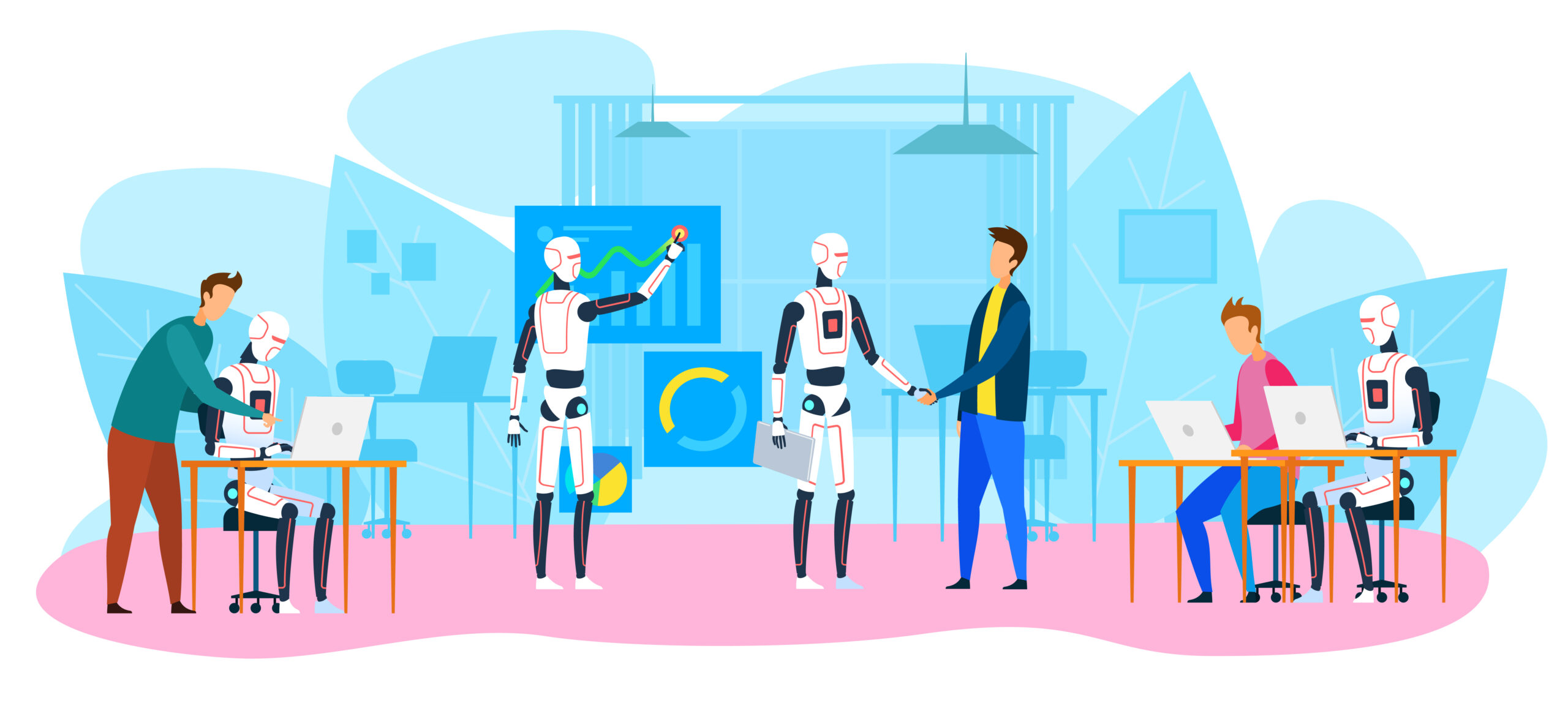Optimized content is a core part of any online business presence. What you say as your brand forms an integral part of your presence in the digital space. It’s also fundamental to how your company develops customer connections and drives new traffic.
Artificial intelligence gives you an entirely new ability to perfect your content optimization, personalization, and metric utilization strategies. You can use AI tools as a sort of computerized proofreader, and you can take content writing suggestions, word things differently, aim for different reading levels and audiences, and much more. These tools allow you to effectively manipulate your content’s voice, tone, and feel to match any target audience, enabling you to formulate a multifaceted face for your content marketing that appeals to the widest possible range of people within your niche.
Utilizing AI for Content Optimization
AI tools can do many things, including generating copy for copywriters. However, in terms of pure optimization, AI tools can also enhance your web content to make it more appealing to search engine algorithms and readers. Tools can provide research for your writing and restructure wording to make it more succinct.
Understanding AI and Machine Learning
Artificial intelligence and machine learning have come a long way in the last few decades. While many people might think of automated phone systems as artificial intelligence, true AI is computer software coded to perform tasks that only humans usually perform. Writing, translating, making decisions, even creating works of art – these days, you can find an AI tool to do just about anything.
Machine learning is a kind of artificial intelligence. These computer systems can effectively learn and improve upon themselves after taking in new data. Many AI tools are programmed to use machine learning to perform tasks better and more coherently communicate with readers.
These days, many businesses utilize chatbots that can learn from user interactions. Over time, their responses become more finely tuned based on what people are looking for.

How AI and Machine Learning Help With Content Optimization
AI and machine learning can grow to serve you in your content needs better. Based on the web content you want for your business, the right AI tool can make better recommendations, rewrites, and suggestions. Over time, those improvements get better based on your previous interactions with AI.
An optimization tool or program recognizes which suggestions you take and which ones you ignore. This will help them familiarize themselves with your unique voice and brand identity. Over time, the goal is that the AI will act like another you looking over your work – only it has perfect grammar, spelling, and knowledge of SEO strategy with access to all of the information and images in the world at its virtual fingertips.
Identifying Key Metrics for Optimization
When trying to find areas of your existing content that need improvement, you should consider a few key metrics. The first of these is engagement. How often are people clicking on your links, blog posts, and Tweets? How often are people commenting and sharing the content you share?
The next metric is the bounce rate. When people visit your website, how often are they leaving without delving further? A high bounce rate indicates that you need to make your content more engaging.
Finally, there’s a conversion rate – do visitors engage in the action you’re looking for? Do they subscribe to your newsletter or follow your brand’s social media account?
AI tools can analyze these metrics and suggest improving your raw numbers. For example, if you’re struggling to get impressions on Twitter, an AI might suggest more engaging social media posts with a friendlier, more conversational tone so people feel more inclined to respond. It might encourage you to include more images or videos that people can watch and engage with or suggest incorporating humor or wit into your brand’s identity.
Conversely, if people regularly read your existing content, but you’re still struggling to sell your services, then an AI might suggest you get more active with your sales tactics. After all, maybe your audience isn’t even aware you have a service they might be after.
Implementing AI Tools for Optimization
There are many different types of AI tools that you can currently utilize for content optimization. These include content creation tools, which can generate article and blog post templates based on the type of piece you want to write and the type of audience you want to read it. Content optimization software might suggest or alter headlines to make them more SEO-friendly or tweak your social media posts to feature the most active hashtags or keywords in your niche.
Finding the right AI tool is all about knowing where your content marketing needs lie. If your content writing is thoughtful and thorough but lacks flair, then a content analysis and strategization tool is the right pick for you. These tools can restructure articles to make them more likely to be featured in Google search results. They might suggest implementing specific images or hyperlinks found in similar pieces with high traffic.
Never forget your brand’s identity when utilizing an AI tool. While AI tools can do a lot for you, you don’t want to take every suggestion they make blindly. You might lose your voice in the process. Users who interact with your business should feel like they’re interacting with a unique identity. Don’t lose your brand’s personal flair on the quest for more clicks.
Utilizing AI for Personalization
Content personalization is vital to how any business interacts with its customers and other brands. It allows you to tailor the experience of everyone who visits your website. There are many ways to utilize personalization on your website, and AI tools can be a big help.
How AI Can Assist in Personalization
AI tools can effectively collect and analyze online data to personalize your content. Nowadays, there is a ridiculous wealth of information on individuals available online. Customers have public social media profiles, browser histories, buying habits, and engagement habits – you can learn about what kinds of quality content they interact with and what they ignore. It would be impossible for a human or even multiple humans to parse through the amount of data out there, let alone analyze and curate it into useful bits. An AI tool, however, can do just that – and get better as it goes along.
AI can even recommend different landing pages, blog posts, or videos based on browsing and buying habits. You can display product reviews that resonate with potential customers based on the keywords they searched for on your site or use their social media posts to determine what content they might be interested in. You can even promote sponsored social media content to users who follow certain pages or regularly search for specific keywords.
Best Practices for Implementing AI-Powered Personalization
Personalization makes it easier to show the right content to the right people. You wouldn’t want to show someone who has only worn jeans a kilt advertisement, so why are you sending the same content to a diverse audience of complex individuals? Every one of your customers and visitors has their own preferences, buying habits, budgets, and backgrounds. Audience segmentation is a crucial part of personalization, which means divvying up your stuff to the people who want it the most.
AI tools can help you segment your audiences by looking at a wide range of available data. Obviously, this includes basic stuff like age, gender, region, and the like. However, audience segmentation can get a lot deeper than that. You can look at specific likes and dislikes, search behavior, and when they’re active online or on social media. An AI content optimization tool can examine the tone of their social media posts and generate personality indicators, how social they are, and their sense of humor. Political affiliations, religious affiliations, if they’re a part of a specific fandom – all of this can help you split up your content and make it digestible for a vast array of increasingly specific audiences.

Conclusion
AI tools represent an enormous opportunity, and businesses would be remiss if they didn’t take advantage of them. You can flourish as a brand online by incorporating systems and tools trained to help your business better interact with people.
The old-school approach of simply trying different methods and seeing what works is dead. AI tools can do much more in much less time than even the most dedicated team of human employees. They can suggest faster than a helpful friend on trivia night, enhance better than the most futuristic camera imaginable, and instantly generate research links you wouldn’t find without scrolling through search results for weeks on end.
FAQ
What is AI content optimization?
AI content optimization uses AI tools to enhance, restructure, edit, and rewrite web content. Tools can suggest changes and rework content to better promote engagement based on your business metrics analysis.
How does AI assist in identifying key metrics for optimization?
AI tools can identify where your business or website might be lacking by looking at your inputted data. By identifying your engagement rate, AI tools can determine what areas of your content might be ripe for optimization. If your bounce rate is low, your blog posts probably don’t need much help. However, if your engagement rate on social media is also low, an AI tool might help you generate social media content so you can reach out to a broader audience.
What are some examples of AI tools for content optimization?
Some AI tools you should consider for content optimization include content creation, search engine optimization, content strategy, and content planning tools.
How does AI assist in personalization?
AI tools can learn how to better interact with your customers and other brands based on how you interact with your customers and other brands. Utilizing language processing tools, collecting data, and using machine learning, AI tools can determine the best ways for your business to communicate.
What are some best practices for implementing AI-powered personalization?
Always stay ethical when gathering data from your customers and web page visitors. You want your brand to be friendly and helpful, not nosy or intrusive. Audience segmentation is another big one. You want to know which areas of your audience will respond to certain content. Finally, resource allocation is key. Knowing where personalization will help and where it won’t is essential.

